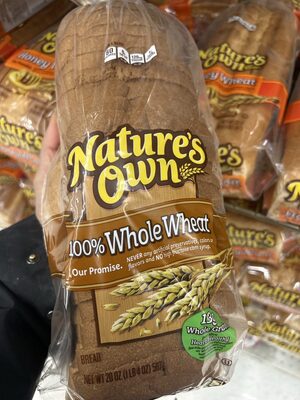
Barcode: 072250037129
100% Whole Wheat Bread
HALAL
📝 Reason: All ingredients listed are either plant-based or minerals, which are generally considered Halal according to Islamic dietary laws. No Haram ingredients or E-codes were identified in the product. Therefore, the product is classified as Halal.
🏷️ Category: Plant Based Foods And Beverages, Plant Based Foods, Cereals And Potatoes, Breads, Sliced Breads, White Breads, Wheat Breads
📄 Certificates: None
Ingredients:
Details
Understanding the Halal Status of 100% Whole Wheat Bread
In today’s world, dietary restrictions and preferences shape our choices greatly. For many, adhering to Halal standards is crucial. If you’ve been wondering whether 100% Whole Wheat Bread meets these standards, you’re in the right place. This bread not only serves as a healthy choice but is also classified as Halal!
What Makes This Bread Halal?
The primary reason for the Halal status of the 100% Whole Wheat Bread lies in its ingredients. A detailed look reveals that all components are either plant-based or minerals, which are generally considered Halal according to Islamic dietary laws. To remove any doubt, here’s a breakdown of its ingredients:
Ingredient Breakdown
- Whole Wheat Flour: A plant-based ingredient that is universally accepted as Halal.
- Water: This natural resource bears no doubt in Halal classification, universally regarded as Halal.
- Yeast: This microorganism plays a crucial role in baking and is usually considered Halal.
- Brown Sugar: Derived from sugar cane or sugar beet, it is Halal unless processed with non-Halal substances.
- Wheat Gluten: This protein derived from wheat also holds a Halal status.
- Salt: A mineral and universally considered Halal.
- Cultured Wheat Flour: A fermented product from wheat, typically Halal.
- Soybean Oil: This plant-based oil contributes positive health benefits, classified as Halal.
- Vinegar: Generally Halal unless it is derived from non-Halal sources, such as wine.
- Distilled Mono- and Diglycerides (E471): These could be derived from plant or animal fats. They are Halal if sourced from Halal-certified animal fats or are plant-based.
- Enzymes: Their Halal status depends on the source; they are considered Halal if derived from permissible sources.
- Monocalcium Phosphate (E341): A mineral salt that is Halal.
- Ascorbic Acid (E300): This essential Vitamin C is also Halal.
- Soy Lecithin (E322): Derived from soybeans, it retains its Halal status.
- Wheat Bran: The part of the wheat grain, considered Halal.
Ingredient Status Overview
Each ingredient was meticulously checked for its Halal status:
- Whole Wheat Flour: Halal
- Water: Halal
- Yeast: Halal
- Brown Sugar: Halal
- Wheat Gluten: Halal
- Salt: Halal
- Cultured Wheat Flour: Halal
- Soybean Oil: Halal
- Vinegar: Halal
- E471: Halal, if sourced correctly
- Enzymes: Halal, if sourced correctly
- E341: Halal
- E300: Halal
- E322: Halal
- Wheat Bran: Halal
Conclusion
In conclusion, 100% Whole Wheat Bread is indeed Halal. With no Haram ingredients or dubious E-codes in its composition, this bread stands as a healthy and compliant option for those adhering to Islamic dietary laws. It’s a wholesome choice in the broader category of Plant-Based Foods and Beverages, specifically among Cereals and Potatoes, Breads, and Sliced Breads. For health-conscious consumers, this bread deserves a spot on your table!

